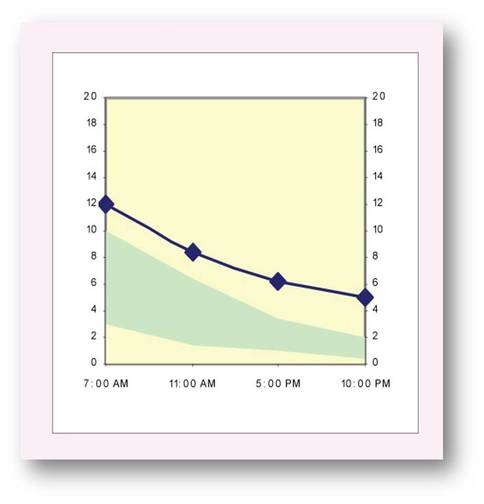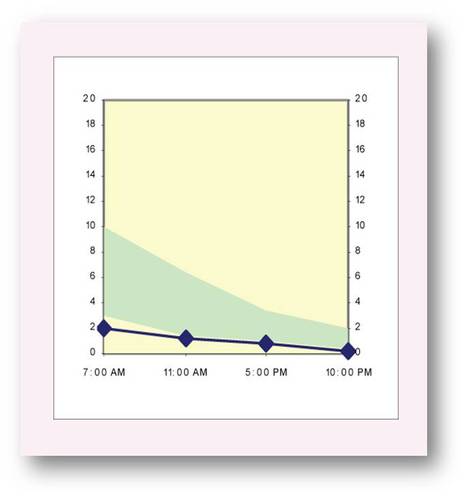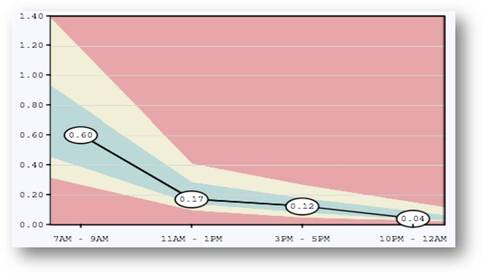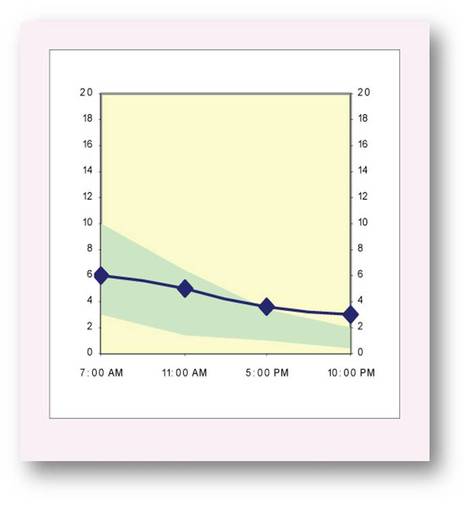Stress. You know what it feels like it. It may be physical, mental or emotional. It’s a condition that most of us are all too familiar with. We were created to withstand a certain amount of stress, but when we push ourselves beyond that limit, we begin to experience health problems. The U.S. National Academy of Sciences estimates that 70-80% of all visits to the family doctor are stress-related. Are you one of the many people today who is living in a perpetual state of overload, literally on the verge of collapse? Understanding how stress is affecting you may just be the ticket to learning how to better manage stress.
What are the dangers of excessive stress?
According to Dr. Jim LaValle metabolism expert and author of Cracking the Metabolic Code, chronically elevated cortisol can lead to insulin resistance, excessive cravings for junk food, gains in body fat, especially belly fat, breakdown of muscle tissue, increased cholesterol and triglycerides, a loss of sex drive and sleep quality, memory problems, disruptions of the immune system and thyroid function, water retention and several other complications.[i]
How do I measure my body’s response to stress?
Cortisol is a hormone that is secreted by the adrenal gland. Although stress isn't the only reason for this, it has been coined the “stress hormone”. Cortisol secretion follows a predictable rhythm throughout the day, highest in the morning and lowest in the evening. However, when stress becomes chronic, this pattern is disrupted. By measuring cortisol you are able to determine how stress is affecting your health. Cortisol can be measured via a blood draw or through a saliva test. While either method provides accurate results, the saliva test is often preferred, as it easily allows for multiple measures to be taken throughout the day. In order to get an accurate picture of your body's stress response, cortisol should be measured four times throughout the day.
Normal cortisol production follows a predictable rhythm.
Cortisol secretion should be at its highest point about 30 minutes after waking. It is responsible for waking you up and providing the energy needed to start your day. Following the morning peak, cortisol levels drop the most from early morning until lunchtime, and then drops at a slower rate into the evening. Ideally, cortisol should be at its lowest point at night, this allows you to fall asleep.
What is your “stress personality?”
When your stress levels go from being acute to chronic, long-term and persistent, over time your body's cortisol secretion changes from its optimal pattern. You start to experience “symptoms” which are often consistent from one person to the next. The following are a few common scenarios of how the stress response varies from optimal, along with common ways you may feel or behave, as a result.
“Stressed Out”
When your body is under stress, initially your cortisol production increases. Cortisol levels are elevated above the norms throughout the day and your body is on high-alert. You may find yourself irritable or short-tempered. You may be craving junk food throughout the day. Your appetite may be insatiable or non-existent. You will have trouble winding down at the end of the day and falling asleep is beginning to be a problem. You are most likely burning the candle at both ends, getting up early and staying up late.

“The Night Owl”
No one is naturally a night owl, your body is designed to shut down at night. Though some people can handle late nights and early mornings for a while, it always catches up with you. If you are a night owl, you are missing your body's cue to unwind and perhaps getting a “second wind” when everyone in your house is going to bed. This may be a result of artificial light coming from a computer screen or TV or artificial energy, like caffeine, later in the day or in the evening. College students and moms typically fall into this pattern by forcing their bodies to stay awake for late night study sessions or some peace and quiet after the kids are in bed. Over time, high evening cortisol levels lead to a greater stress response from the lack of quality sleep.
“I know I need to get up and get things done, but I just can’t get myself off the couch”
When chronic stress goes unchecked for a period of time, you go from “stressed out” with the oversecretion of cortisol, to the adrenal glands shutting down or drastically decreasing cortisol secretion. With the lack of cortisol, you may find yourself feeling blah, unmotivated, tired all the time and depressed. Basic everyday activities require much effort and everyday tasks start to get neglected. If you work, that may be all you can summon the energy for. You may find yourself gaining weight and losing the desire to eat healthy or exercise. If you force yourself to exercise you find you feel worse. Your body's stress response is broken and any stress may derail you. This condition is commonly referred to as adrenal fatigue, adrenal exhaustion or adrenal insufficiency.

Summary
Stress is more than an inconvenience. If left unchecked, it can lead to a myriad of health problems. Stress impairs cognitive performance, suppresses thyroid function, contributes to blood sugar imbalances, decreases bone density, decreases lean body mass, increases blood pressure, lowers immunity, increases inflammation and increases abdominal fat which is associated with increased risk of heart disease, metabolic syndrome and diabetes. Your future health is in your hands! While it's important to change the lifestyle factors that contribute to stress like a poor diet, lack of sleep or improper exercise, it's important to remember that the source of stress isn't necessarily circumstances or situations, but our attitude or approach toward them.
Do you feel tired all day long or have a mid-day energy drop? How about sleeping – difficulty falling asleep and/or waking up at 2-3 am & can't get back to sleep? Do you carry most of your weight around your midsection? Stress comes from many facets of life & the truth is we all have it! Whether you are trying to lose weight, improve health, or train for an endurance event make sure your body is physically prepared to achieve these goals. You will test your stress hormone, cortisol, 4 times per day via an in-home saliva kit to see how they compare to optimal functioning ranges & if off balance, work to restore function via diet, exercise, lifestyle, and supplementation.
If you answered yes to any of the questions above and are interested in a measuring your cortisol leves, check out Health Check USA's Stress & Resilience Panel.
References
[i] James LaValle. Cracking the Metabolic Code. 2004. Basic Health Publications. Laguna Beach, CA.
Lab testing examples provided by ZRT Laboratories.
This post was co-authored by my handsome husband. Tom is the Director of Nutrition & Weight Management for Life Time Fitness and Life Time Weight Loss.

